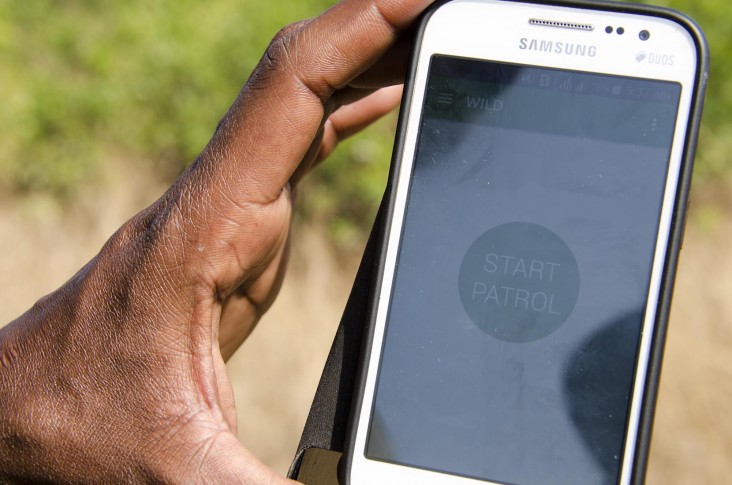
For Immediate Release
To strengthen existing wildlife anti-poaching and human-wildlife conflict (HWC) prevention, the U.S. Agency for International Development (USAID) launched the Wildlife Information and Landscape Database (WILD) — a mobile phone application and cloud-based database designed to improve collection, sharing, management and analysis of biodiversity information in East Africa.
In January 2014, in response to President Obama’s Executive Order on Combating Wildlife Trafficking, USAID’s Planning for Resilience in East Africa through Policy, Adaptation, Research, and Economic Development (PREPARED) Project established partnerships with key government, non-government, and private sector stakeholders in Kenya and Tanzania to explore ways technology could be used to improve the fight against poaching in East Africa. The goal was to develop innovative tools to prevent poaching and HWC, as well as to improve monitoring, coordination, and analysis of anti-poaching and HWC deterrent efforts.
Brad Arsenault, Deputy Office Chief for Environment at USAID’s Kenya and East Africa Mission, explained that “Protecting wildlife from poaching and illegal trafficking helps to secure our global heritage and fight against sophisticated criminal networks that lead to insecurity.”
The WILD application tracks the movement of game scout patrols using global-positioning software (GPS) on smart-phones. While on patrol, game scouts can record information on poaching, animal mortality, human wildlife conflict, illegal human activity, community service, wildlife sightings, climate data and more.
The information captured in WILD is stored in a secure online database where it can be analyzed and used to support evidence-based management decisions, such as re-organizing patrol routes to cover areas with higher incidents of poaching or HWC. WILD can also be used to track the progress and outcomes of counter wildlife trafficking legal cases.
Users can view reported incidences geo-spatially by patrol unit, time period or incident type. Users can also link related incidences that occur over a longer time period; for example, linking a crop-raiding incident with a retaliatory killing that may have happened several days later.
WILD can be downloaded on Android-based smart phones via the Google Play Store and has offline capacity to ensure functionality when there is no or limited network access.
# # #







Comment
Make a general inquiry or suggest an improvement.